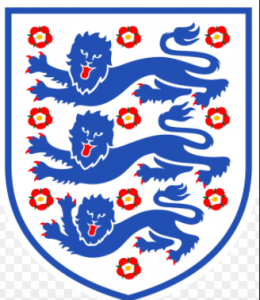By Barry Pearl
In past years, England have often started World Cup finals with high expectations. Year after year, they have gone into tournaments at least expecting to get to the latter stages, with many suggesting that they had players good enough to go all the way.
The end of the Golden Generation
The so-called ‘Golden Generation,’ which featured players such as David Beckham, Steven Gerrard, Frank Lampard, Paul Scholes, John Terry and Rio Ferdinand, made the quarter-finals under boss Sven-Goran Eriksson twice (2002 and 2006), but even that was considered an underachievement.
In 2010, it was expected that Italian Coach Fabio Capello would provide the discipline and tactical knowledge needed to take them even further. But it was not to be, as England crashed out in the round of 16 after a string of uninspiring performances prompting further questions about England’s credentials.
Lowered expectations
The first signs of a lowering of expectations came in 2014 under current Crystal Palace boss Roy Hodgson. There had been a clamour from many in the media world to hand the reins to an English manager, but as soon as Hodgson was appointed, he began playing down his team’s chances – and by the time they arrived in Brazil expectations were perhaps at an all-time low. However, even the most pessimistic England fan could not have predicted the shambles that followed as the national team were sent home from the tournament early having finished bottom of Group D with just a single point on the board.
England’s recent World Cup performances
France 1998: Round of 16 (9th)
South Korea/Japan 2002: Quarter-finals (6th)
Germany 2006: Quarter-finals (7th)
South Africa 2010: Round of 16 (13th)
Brazil 2014: Group stage (26th)
In 2018, things feel slightly different (let’s skip the Allardyce debacle). Expectations are still low. For example, as of March 26, 2018 England were 16/1 with Betway in the betting odds behind even Belgium. However, there is a quiet confidence among some that England could actually overachieve. This new realistic attitude has come as a result of the manner in which boss Gareth Southgate has gone about his business. His mild-mannered approach in the press room and his attention to detail on the pitch has surprised many who expected him to be replaced by a bigger name having originally taken over as caretaker in 2016.
Youth & experience
The current England squad has been slowly transformed under the current boss and many of the players who carried that previous weight of expectations are no longer involved in the set-up, including former captain Wayne Rooney. Instead, there is a new group of players who have both youth and experience on their side.
In the friendly against the Netherlands on March 23, 2018, the team was made up of 10 outfield players who had all reached the last 16 of the Champions League and nearly all of them were under 27 years of age. In that game, they claimed their first win over the Netherlands since 1996.
From the senior squad down to the youth ranks, the England set-up now feels like a well-oiled machine made of components forged in the country’s top academies. And with expectations reduced to an all-time low, this could provide the perfect environment for these players to shine. This is a group of players that will be able to go to Russia and enjoy their football unburdened by the pressure that their predecessors carried.
A cultural shift
Perhaps the most striking element of this new era is the change in the style of play. England now have a team who are comfortable in possession of the ball and providing all their big names are fit, they also have a front line capable of making productive use of that possession.
Modern football has changed, and it has taken the employment of an unfancied coach to drag England into this new era. The days of Capello and more pertinently, Hodgson, already seem a world away. In his short spell in charge, Southgate has experimented with systems, formations and lineups to such effect that the England team are already being spoken of in different terms by others in the football world. If one national football team needed to change its identity and force a cultural shift, it was England. And so far, the plan has been a success.
Of course, it might be too early for the visions behind this blueprint to come to fruition but whatever happens in the summer, it is a path that England must continue to follow if they are to once again be considered a force on the global football stage.



